Dog God: A Commercial Movie Worth Entering the Cinema
Note: This article has serious spoilers.
"Dog God" is a heroic story of different colors in this year when all kinds of super-English stories are collectively silent. It tells the story of a young man who experienced terrible childhood trauma, a disabled drag queen, and at the same time ruled a fierce team composed of obedient puppies. He is an unusual superhero who can’t tell right from wrong.
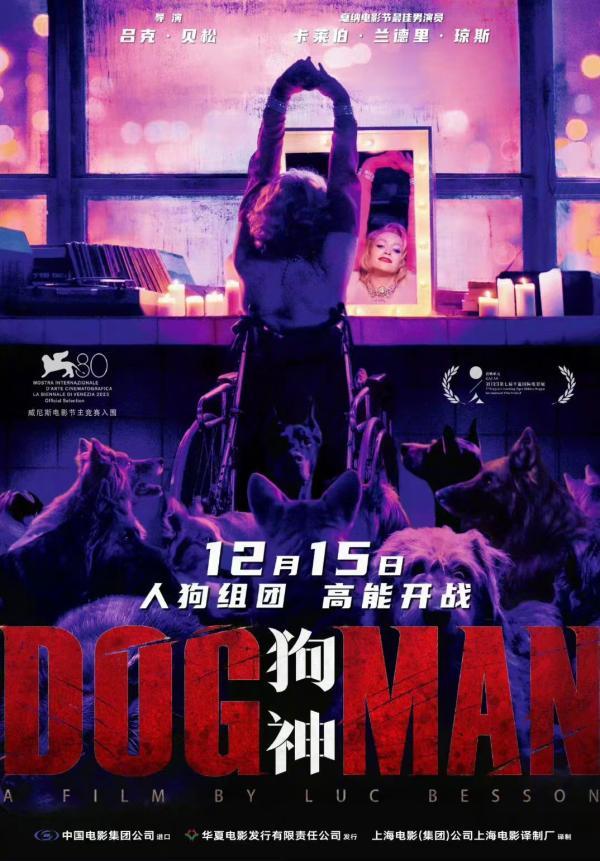
Poster of "Dog God"
Luc besson put this story in the framework of the 1990s. At the beginning of flashback, Douglas, the arrested man, was interviewed by a criminal psychiatrist in prison and told his long and tragic life story: family tragedy, father’s violence, mother’s departure, social isolation brought by disability and orphan status … The only thing that gave him warmth was the dog.
Therefore, as a social outcasts, Douglas took the initiative to deviate from the mainstream society, exiled himself with the dogs, and established a city-state that only belonged to him and his dogs on the ruins of buildings. He even had control over his dogs similar to the magic piper in fairy tales, and he could train them to sneak into the rich mansion to steal, and he could also threaten the black boss to let the poor people go by thunder.
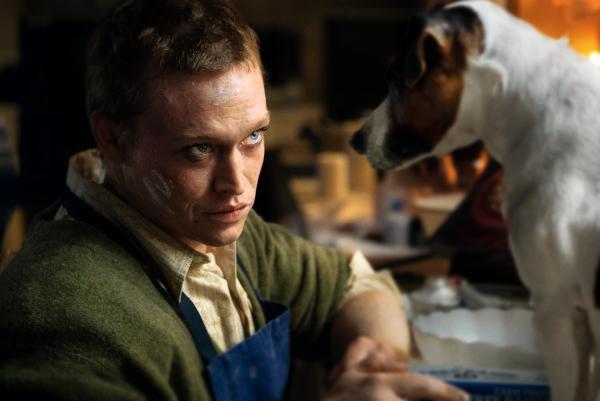
Stills of "Dog God"
This setting itself, to tell the truth, is tacky and naive. Douglas’s various difficulties in his miserable life are not explored and pondered in depth in the film. Domestic violence makes him mentally and physically disabled. Young actresses use Shakespeare’s works to get him out of childhood abuse and find a fulcrum in life. All this seems to lack complexity, as if every choice and step of a person can be traced back to a straight line.
Moreover, in "God of Dogs", the images of dogs, drag queens, psychologists, disabled people, Shakespeare actors and so on, and even the label of the hero who loves dogs are all shaped by a rather simple and rude stereotype, which serves the promotion of the drama. There is hardly an unforgettable and in-depth character image outside the hero. Moreover, the feelings between Douglas and his dog companions also lack room for description, so the audience who took them to the cinema to see Meng Chong’s cure will basically be disappointed.
However, as a commercial film, it has completed attracting the audience into the cinema and meeting the needs of spiritual stimulation in various spectacle scenes with visual impact. Among them, how to skillfully use the breeds and sizes of dogs to complete some drama tasks can still bring quite a few interesting drama bridges. "The God of Dogs" adopted a simple idea, and brought it to the extreme in the image, without excessive piling up.
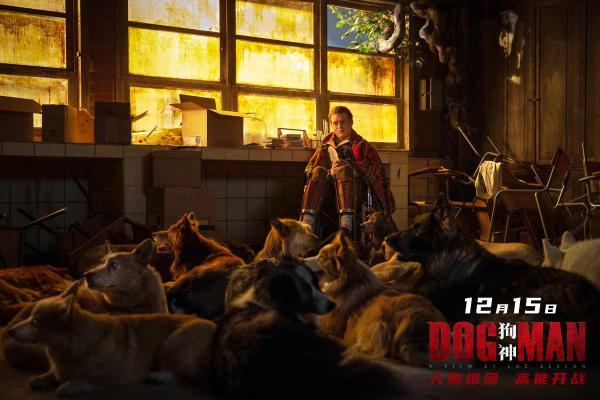
Stills of "Dog God"
In particular, it is worth mentioning that the climax of the film, a scene in which Douglas and the dogs fight against gangs, is quite similar to the vicious dog version of "Home alone". Dogs fight with gangsters in the dark and use traps and body differences to trap and kill these intruders. For the audience who like violent scenes, this is a quite innovative action show. But for dog lovers, watching dogs kill people may not have much psychological pleasure, although dogs in the film still look dexterous, elegant and lovely when killing people.
Moreover, you have to say that the film relies more on the actors themselves to prop up the charm of the protagonist. Caleb landry jones, the actor who plays Douglas, has created a very difficult role perfectly, which makes it difficult for people to take their eyes off him in the process of watching movies. When he performed the famous French edith piaf’s La Foule in lip sync, the androgynous, sad and crazy atmosphere of the characters was particularly charming in the spotlight. Therefore, many overseas audiences and the media compare his performance with that of Jaquin Phoenix in The Clown.

Stills of "Dog God"
Douglas, a character, chose to associate with dogs when he couldn’t get care and respect in society. He is both a victim and an avenger, and the person who directly harmed him has withered, so the object of his revenge seems to be the people who control power and money in society. But in fact, at the end of the film, luc besson shows that, like all tragic heroes since Greek mythology, Douglas’ ultimate revenge object is fate, the god who gave it, and this effort is doomed to fail. He has no choice but to torture heaven with his life.
Douglas finally got up from his wheelchair, walked into the shadow of the cross and shouted "I’m here for you", and finally fell under the cross. This scene is certainly moving. The film tries to depict his deep, Christ-like pain, and his attitude is sincere and even severe symbolic. But once you think about it carefully, you will feel that the emotional rendering is enough, and the drama is not logically paved and stacked enough.
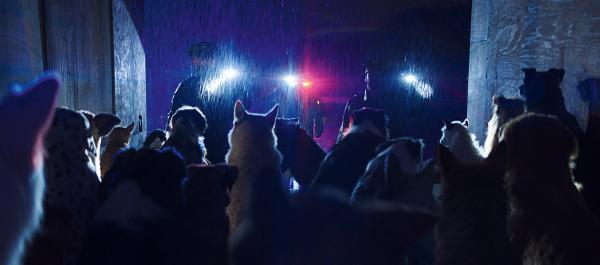
Stills of "Dog God"
When we are talking about fate, what puzzles and confuses all mankind most is the unpredictability and irrationality of fate. Therefore, we need God and an all-knowing and all-powerful master to make us believe that probability itself is an orderly control in the macro sense, and only because we are too small to understand can we get comfort and security.
Therefore, when "The God of Dogs" tries to push Douglas to ask God "Why is my life so miserable" at the expense of his life, it may be more effective if there are more unpredictable and unreasonable displays of fate, and more protagonists are close to success or get some happiness but fail for no reason. Instead of the present situation, Douglas’s misery can almost be simply attributed to two external reasons: family of origin’s cruel father and brother, and the society’s indifference and differential treatment of the disabled. The film creates a simple attributive presentation of the tragedy of the characters in dramatic logic, which leads to the fact that when the protagonist finally points the finger at the god in the void, the shock is greatly weakened.
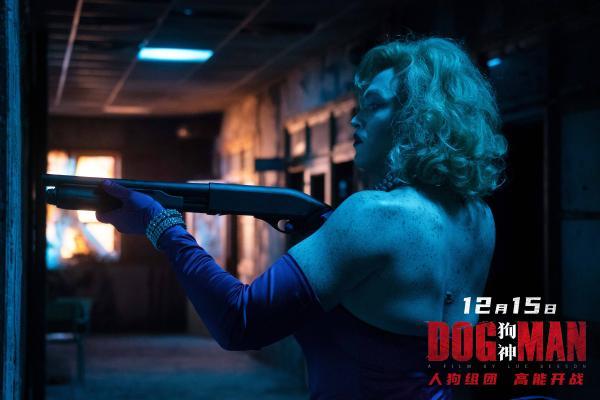
Stills of "Dog God"
Luc besson’s career as a director reached its peak in 1990s with The Killer is Not Too Cold and The Fifth Element. He is one of the French directors who is best at Hollywood-style commercial narration, and he has excellent visual imagination, which has always made up for the shortcomings of his story depth. This time, the "Dog God" can feel its efforts in characterization, but it is somewhat surprising that this film can be shortlisted for the Venice Golden Lion Award. If this film is regarded as a serious portrait, there are many shortcomings. However, if it is only regarded as a commercial film, luc besson makes people feel that "your uncle is still your uncle". His familiarity with and control over commercial films really makes people sigh: it is really a long time since I saw a commercial film with such a high degree of completion in domestic cinemas. From this point of view, "Dog God" is still worth your going to the cinema.
(This article is from The Paper, please download the "The Paper" APP for more original information)
Reporting/feedback